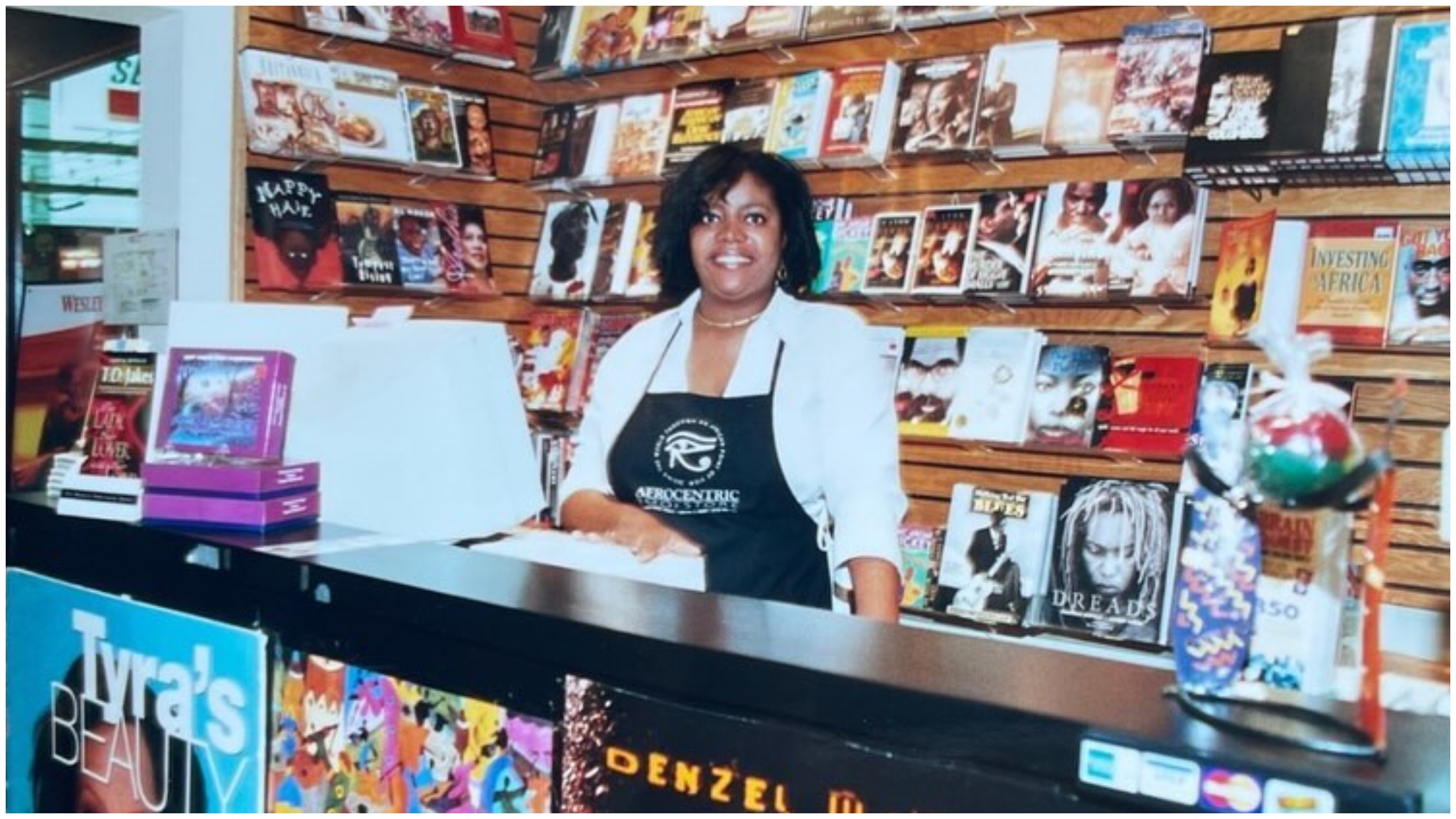Maya Angelou Walked In — and Everything Changed
Desiree Sanders was answering phones like any regular day at her South Side bookstore when she heard a voice she couldn’t mistake.
The caller had a warm, regal tone. “Hi, I’m calling to see if you have any copies of I Know Why the Caged Bird Sings,” she said. It was Maya Angelou herself. Desiree said yes, held four copies, and waited in disbelief. Soon after, Maya Angelou and her driver walked through the door of Afrocentric Bookstore.
“I was like, ‘Ms. Angelou, it’s an honor for you to come in my store,’” Desiree recalled. She tried to gift the books to Maya, but the literary legend insisted on paying. “You have to make money,” Angelou said, even adding a fifth copy for her driver. That visit sealed the bookstore’s place in literary history.
A Bold Dream Built by a Young Black Woman
Desiree Sanders opened Afrocentric Bookstore in 1990 when she was just in her early twenties. At the time, the Black bookstore scene in Chicago was dominated by older Black men. As a young Black woman, she faced resistance and subtle pushback.
“There was machismo, misogynistic stuff I had to deal with from Black men,” she admitted. But she didn’t let that stop her. She stayed committed to building a welcoming space where Black readers could find stories that reflected their lives and dreams.
And her unique touch worked. By 1993, the store had grossed over $200,000—more than $400,000 today. Afrocentric became more than a bookstore. It became a vibrant cultural hub on South Wabash Avenue.
Inspired by Maya, Led by Passion
Growing up on Chicago’s South Side, Desiree was a quiet, bookish child. Books were her escape from loneliness. One book changed her life: Maya Angelou’s I Know Why the Caged Bird Sings.
“She experienced such severe trauma and then came out of that,” Desiree said. “To see her travel, live fully, and embrace the world as a Black woman showed me what was possible.”
Angelou’s words—and her call to “pursue the things you love”—became a quiet anthem in Desiree’s heart. So she turned her love of books into a business. And she did it so well that the woman who once inspired her walked into her shop to buy books from her.
Building Community Through Black Literature
Desiree did more than just sell books. She created space for joy, learning, and pride. Afrocentric hosted packed author signings and community events. When publishers refused to send Black writers to her store, she pushed back.
“They’d send them to big white stores,” she said. “But I reached out directly. I requested to be part of their book tours.” It worked—especially after Maya Angelou’s visit. Other authors took notice.
She also launched “Book It Black to Bronzeville,” a lively book festival on the South Side filled with panels, culture, and celebration. She gave people more than just books—she gave them a sense of belonging.
A Legacy That Still Echoes Today
Afrocentric Bookstore officially closed in 2008, but its impact still lives on. Desiree’s daughter, Fatimah Warner—better known as the rapper Noname—has continued her mother’s mission. She launched the Radical Hood Library in Los Angeles, a community reading space focused on uplifting Black voices.
Even now, Desiree gets stopped in the streets of Hyde Park.
“Desiree! Is that you?” people shout with joy.
Though the bookstore no longer has a physical location, its spirit is very much alive in the hearts of many Chicagoans. Afrocentric was more than a store. It was a dream fulfilled, a community built, and a life transformed by literature.






Leave a Reply